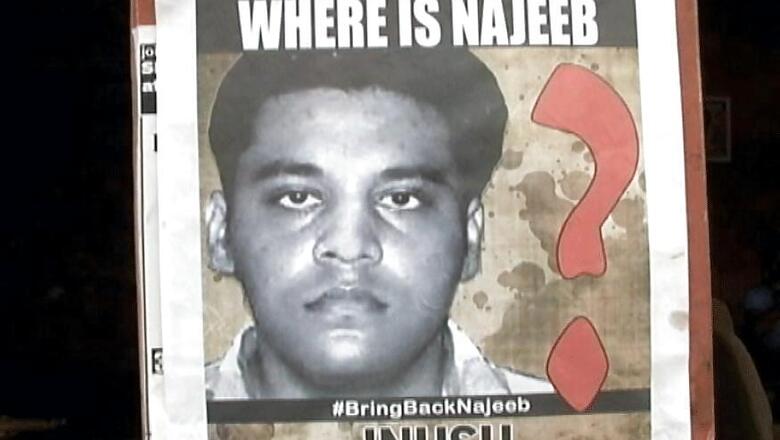
views
New Delhi: The Delhi High Court on Friday again rapped the Delhi Police over the manner of its probe into the disappearance of JNU student Najeeb Ahmad, missing since October last year, saying the agency appeared to be looking for an "escape route" and "beating around the bush".
A bench of Justices Vipin Sanghi and Deepa Sharma said the conduct of the police showed it was trying to sensationalise the matter or looking for a way out as it was filing reports in sealed covers and "there was nothing confidential, damaging or crucial" in them.
"This conduct itself ... you (police) pitch it (report) so high that you are sharing with us something so confidential which is not even shared with your trusted lawyer, gives us the impression that it was a fast one being played on us," the bench said.
"We have to keep in mind the possibility that the police is trying to sensationalise or trying to find an escape route. We are left with the impression that the investigation is not being done properly," the bench added.
The court also lashed out at the police saying it has been "beating around the bush and not in the bush" as it has been sending people across the country and setting up special investigating teams (SITs), but the nine students suspected to be behind Najeeb's disappearance were not questioned on day one and neither were they taken into custody.
Noting that the messages of the suspected students have not yet been examined, the court today said if the messages of the period when Najeeb went missing have been deleted, "then that in itself is incriminating".
Blasting the manner the police carried out the probe, the court also said "if today it is Najeeb, tomorrow it could be anybody, just because he belongs to some other community or a political body".
The police cannot refrain from investigating the suspects merely because of their political affiliation. "It cannot be like this. We are not satisfied," the bench said.
Responding to the court's observations, DCP Ram Gopal Naik, who heads the SIT, told the court how he went about investigating the case and what all aspects and angles, including that of Najeeb's medical condition, were considered by him.
He said he could not seize the mobile phones of the suspected students as there was no material to proceed against them.
However, the bench disagreed with the stand saying if the suspected students had allegedly assaulted Najeeb a day before his disappearance, then "it was logical" to check their mobile phones.
It also told the police officer not to be "judgemental" about the medical condition of Najeeb.
During the hearing which will continue on May 16, the court also said there was nothing in the forensic analysis report with regard to Najeeb's laptop that he was visiting websites related to ISIS as was reported in a newspaper.
The paper had based the story on police information, though the police had later denied any such development. The court today said the reporter who wrote the story should be asked from where he had got the information.
To this, advocate Rahul Mehra, appearing for the police, said the reporter was asked about it and he had refused to disclose his source.
Thereafter, the court said the police should have carried out an internal inquiry as to who was the officer who had leaked or planted that information.
The observations of the court on this aspect came after senior advocate Colin Gonsalves, appearing for the missing student's mother, said the news report that Najeeb viewed ISIS content has sullied the family's reputation and devastated them.
The court was hearing a plea by Najeeb's mother, Fatima Nafees, seeking whereabouts about her son who went missing from the JNU campus on October 15 last year and is yet to be traced. Now she is seeking dismantling of the SIT and setting up of an independent SIT of police officers from outside Delhi.


















Comments
0 comment